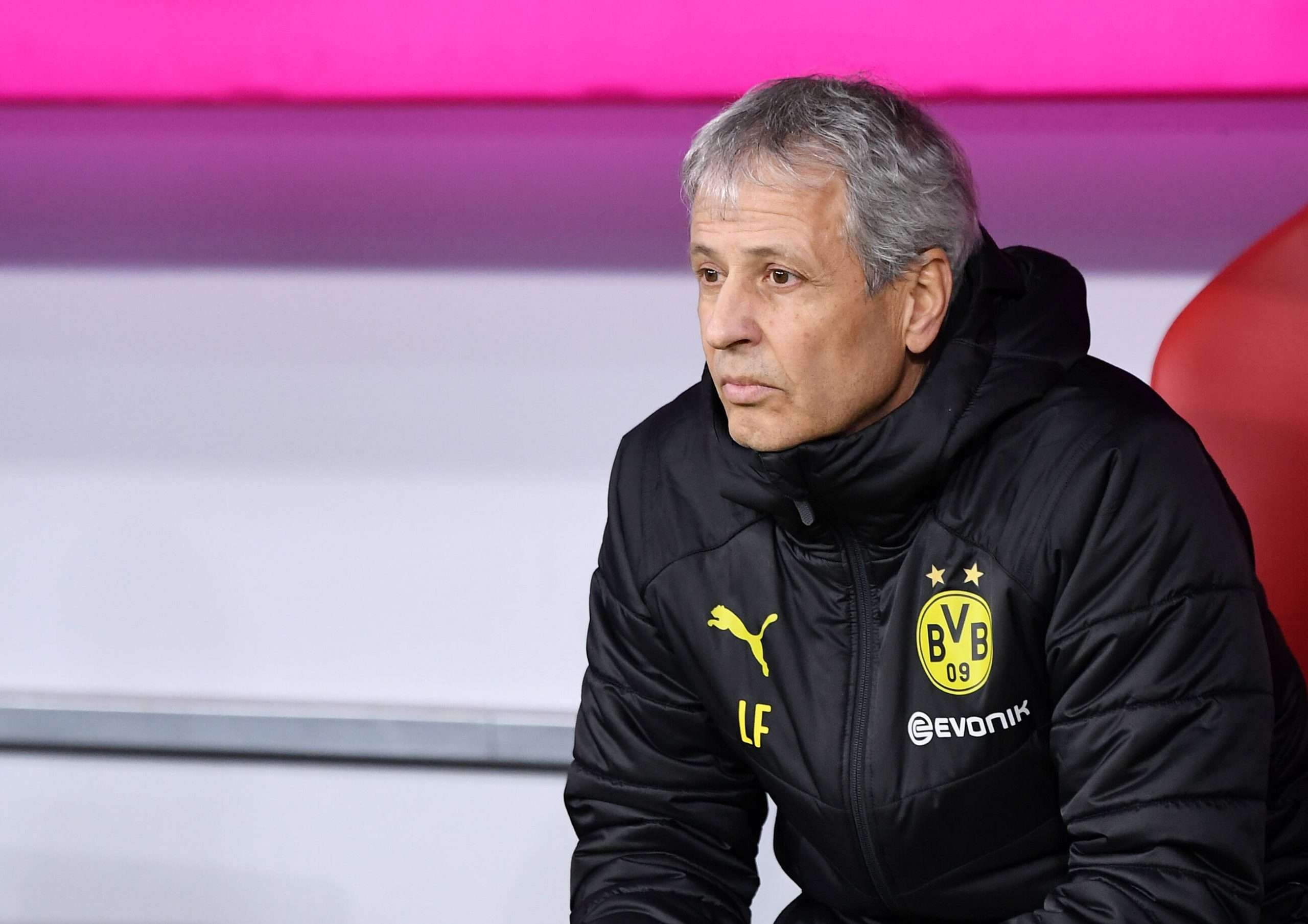Borussia Dortmund’s sacking of Lucien Favre comes as no surprise. The only surprise is that it took the Dortmund hierarchy this long to part company with a head coach that was unlikely to bring any success to Die Schwarzgelben.
The humiliating 5-1 defeat to Stuttgart at the Westfalenstadion was the last straw for sporting director Michael Zorc and CEO Hans-Joachim Watzke. It was a pathetic performance that could have resulted in a far heavier defeat.
Let’s give Stuttgart credit for their belief and attacking play. They have had a strong start to the season under Pellegrino Matarazzo and fully deserved the three points.
But let’s also get serious.
Borussia Dortmund have no business losing at home to Stuttgart, despite no fans in attendance, just as they had no business losing at home to FC Köln two weeks ago.
2018/19 was Favre’s chance
Lucien Favre’s spell in charge of Borussia Dortmund got off to a great start and it looked like they would finally break Bayern Munich’s Bundesliga stranglehold. Dortmund were nine points clear of FC Bayern after Matchday 12.
They surrendered the lead on Matchday 28 after a 5-0 thrashing at the Allianz Arena that effectively ended their hopes.
Bayern overcame their worst start in eight years and overturned the deficit to win the 2018/19 Bundesliga by two points.
Favre’s chance came and went and surely the writing was on the wall then. Bayern were unlikely to start so slow again and had strengthened in the transfer market.
Tactical Deficiencies
In November 2019 Borussia Dortmund lost 4-0 in Munich in Der Klassiker, then rallied from 3-0 down at home against Paderborn to draw 3-3 thanks to Marco Reus’ goal in added time.
They then lost 3-1 at Barcelona in the UEFA Champions League. Favre reacted by switching to a back three formation.
It was a move that came out of desperation more than anything else. Favre initially had some success with the formation but once he switched he was basically stuck with it.
He kept sticking with it even when faced with a lack of natural centre-backs, asking 35-year-old Lukasz Piszczek and defensive midfielder Emre Can to fill gaps.
Compare that with elite tacticians such as Julian Nagelsmann and it is clear that Favre had tactical deficiencies that meant challenging for titles at Borussia Dortmund was unlikely.
Lost the dressing room?
Once a manager loses the faith of his players the board generally find out fast and react accordingly.
Some players can be very influential and there are probably none more influential in Dortmund’s dressing room than Mats Hummels and Marco Reus.
Hummels didn’t mix his words after the disaster against Stuttgart, by telling Sky Germany: “We always try to play small and small through narrow spaces and have a huge ball-loss rate. If it works, it looks like nice football. But it rarely does.”
Reus was just as critical, saying “Stuttgart was superior to us in all respects. We are not a team that can defend well.”
Their words tell an important story, and their influence on the younger players in the squad means it’s likely that respect for Favre’s methods had diminished significantly after the Stuttgart defeat.
Improving players
I find it difficult to find many players that Lucien Favre has improved. Would young talents including Giovanni Reyna, Jadon Sancho and Erling Braut Haaland have reached their current levels under most top flight managers?
Probably, and you could also argue that many players have regressed under Favre.
Injuries have played their part for sure, but Nico Schulz, Mahmoud Dahoud, Julian Brandt and Thorgan Hazard have gone backwards under Favre.
What about Marco Reus and Sancho this season?
Squad issues
It was a huge effort to get so close to Bayern Munich in Favre’s first season in charge. With Paco Alcácer scoring 18 goals in just 1205 minutes of Bundesliga action, Mario Götze frequently led the line despite not being a recognised striker.
Jadon Sancho and Marco Reus helped to fill the void by combining to score 29 goals.
Borussia Dortmund attempted to address the issue last season by signing star striker Erling Haaland. But once the Norwegian picked up an injury, the lack of options up front meant Favre was back to filling the void again.
Turning to Youssoufa Moukoko was admirable in many ways, but as good as Moukoko is and could come to be, putting a 16-year-old in that position highlights deficiencies on and off the pitch.
You could say Bayern Munich would be in the same situation if Robert Lewandowski got injured for a lengthy period of time, but you would back the Bavarians and Hansi Flick to find more effective solutions.
Where to now?
I like Lucien Favre. He appears to be a genuinely nice and respectful man. But he doesn’t regularly win titles.
You could say that Jürgen Klopp had not won any titles when Dortmund appointed him in 2008, but he was 40-years-old and his successor Thomas Tuchel was 41-years-old when he took over in 2015.
Klopp and Tuchel won titles in Dortmund and both won more silverware after leaving the Westfalenstadion. Favre was 60-years-old when he moved to Dortmund and had much more experience under his belt.
The only title he won after guiding FC Zürich to the 2006/07 Swiss Super League title was the 2019/20 German Super Cup following a 2-0 home win against Bayern Munich.
The obvious candidates to replace Favre are Marco Rose and Jesse Marsch. Both managers recently guided RB Salzburg to the Austrian Bundesliga title, have their teams playing an exciting brand of attacking football and regularly improve their players.
Watch this space…











